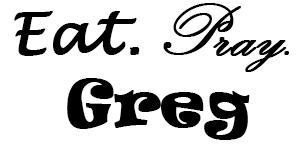Romania was a place that had always captured my interest in my youth, from Castlevania to Dracula to Vigo of Carpathia. But as I grew, I learned that actual monsters resided in this equally foreboding yet beautiful country. But the genesis of my more mature intrigue was more personal beginning back when I was attending high school.
During this time, I had a pair of friends, twins actually, who joined my school freshmen year. Although having lived in the United States for most of their lives, these boys were political refugees with their parents from Romania. When they were born during the height of the Ceausescu regime, they broke the record for the largest babies born in this Soviet hospital. Given Romania’s medical care at the time, I am certain that tacitly, their mother was bestowed a high honor by the state. As the situation in Romania deteriorated around them, their parents decided it was time to leave. Given their status as international traveling orchestra performers, the task, although difficult, was easier than if they had been engineers or apparatchiks responsible for the maintenance of the Romanian way of life.
Another element the piqued my interest about this country, other than my cousin informing me that my paternal grandmother reluctantly shared that this land was her family’s homeland and thus mine, was a chapter from the book Freakonomics. The economists that wrote it discussed the difference between the policies of Roe Vs Wade in the United States legalizing abortion against Ceausescu’s policy of births at all costs. Unfortunately for the unwanted children born during this time, the orphanages of Romania were crammed beyond capacity. So much so that care to these babies, children, and even teenagers was rationed. For anyone that has had even the faintest experience with infants, they need to be talked to, held, and comforted. If not, they fail to make attachments and eventually grow up seeing the world as a cold and dark place. This point was driven into my soul when my father, a trained physician, shared that he noticed the young woman that had recently and harshly ended a relationship with me shared a trait common with these Romania orphans. When infants are left unattended for hours on their backs in cribs, their heads, necks, and shoulders lack curves and go straight down. From what she mentioned of her childhood, her distant and unmotherly mother failed to care, even minimally, for her daughter, leaving her to hate herself, the world, and everyone in it. Imagine an entire generation growing up like that and the legacy it would leave.
It was with all this, as well as being well versed with the tomes of Lt. General Ion Pacepa and having viewed the Amazon “comedic” series Comrade Detective twice, I entered Romania. Upon arriving in Bucharest, I was incredibly taken back by the sheer beauty of the city. Grand thoroughfares and fantastic buildings were all around. With all this grandeur, it could have been the middle of Paris. But, like the countless Romanian beauties I had seen going about their everyday lives, the details were in the subtlety. The official candy bar of the country, given to children, had an overpowering taste of alcohol. In the convenience stores, they sold 3-liter plastic bottles of beer. Their grandiose department store bathroom had used syringes hidden behind a radiator. Around the mostly tourist spot of where I was staying, advertised as freely as the restaurants and bars were bordellos.
Frankly, I was not sure of what the legacy of Romania was for me or for the world. The people of this land had suffered through the whole course of their existence. From being a distant Roman colony to having to fight off violently an Ottoman invasion, being subjected to Nazi tyranny, and eventually being conquered by the Soviets. It was during the Soviet era that they said Bucharest was darker than Moscow in both kilowatts and repression. For a primer, read about the horrifying Pitești Prison experiments on political prisoners that were deemed counter-revolutionary.
But, in December of 1989, the people had had enough and violently threw off their chains, as only a people nursed on the milk of deprivation and torment could. Perhaps that is their legacy. While the wounds inflicted by the old regime are still healing (even over 30 years on) and will be there for a few generations to come, it does not stop the people from loving life, as was eloquently portrayed when I joined the outskirts of a block party where the din of the music was nearly outmatched by the people laughing and singing.
When I was attending the wedding in Regio Emilia, Italy of my school friend, as we were walking from the ceremony, I had the chance to have a chat with his mother. As we walked, she looked to the sky and saw some birds flying. Like a Shakesperian soliloquy, she said one of the most profound things I had ever heard, no doubt forged through the crucible of survival. While lamenting that she gets philosophical at times of high emotion, she stated, “Happiness is like a bird. When it flies to you, be grateful that it came. And do not be sad when it flies away, fore it is going to the hands of someone else.”


No comment yet, add your voice below!